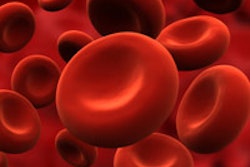A new genetic test accurately and consistently diagnoses benign nodules on the thyroid gland, according to a study presented June 22 at the annual meeting of the Endocrine Society.
The problem with the current screening method -- typically a fine-needle aspirate biopsy -- is that in one-fifth to one-fourth of them the results are unclear, according to the study authors, from Pontifical Catholic University of Chile. In addition to causing anxiety among patients, inconclusive tests lead to repeated tests to rule out cancer, or even to surgery, given that cancer is present in about 25% of inconclusive cases. As a result, 3 out of 4 patients have unnecessary surgery, leading to rising treatment costs and the risk of possible complications related to unnecessary medical procedures.
To develop their gene signature test, the investigators conducted a literature search to identify 18 genes associated with thyroid cancer. They then selected 10 of these genes to develop a computer program that detects the presence of cancer in thyroid nodules. Using a sensitive DNA-amplifying test called polymerase chain reaction, they tested samples of thyroid nodules from 300 patients.
The test is potentially useful to identify patients who do not require surgery, according to researchers. The test accurately identified benign nodules in nearly all samples analyzed. Specifically, the test differentiated between cancerous and noncancerous tissue in 96% of thyroid samples.
More than 60,000 cases of thyroid cancer will be diagnosed in the U.S. this year and about 1,850 related deaths will occur, according to estimates from the American Cancer Society. Of these, more than 45,000 will occur in women, who develop the disease more often than men.



















